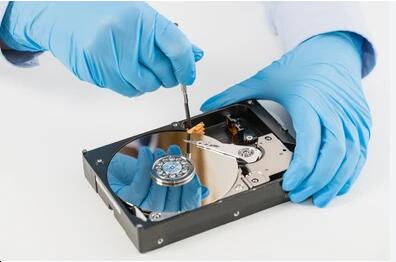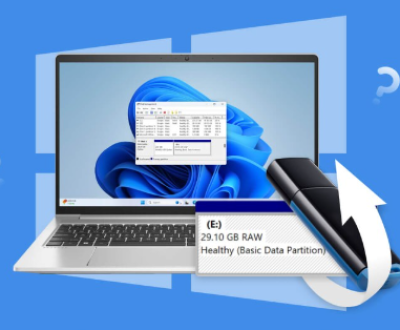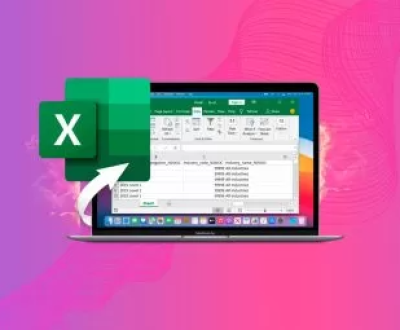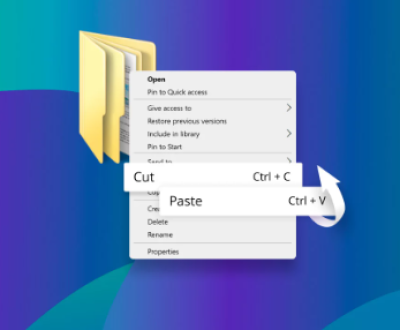A hard disk drive (HDD) is an essential component of a computer system, storing vast amounts of data from operating systems to personal files. However, like all mechanical devices, HDDs are susceptible to failure. When a hard disk begins to show signs of imminent failure, it’s crucial to understand the symptoms, causes, and possible solutions to mitigate data loss and system downtime.
Warning Signs of Imminent Hard Disk Failure
Unusual Noises: Hard disks often emit a series of sounds that can indicate issues. Clicking, grinding, or whirring noises are red flags. These sounds suggest mechanical problems, such as a failing read/write head or a damaged spindle.
Frequent Crashes and Freezes: If your system frequently crashes or freezes, especially when accessing files, it may indicate hard disk issues. These symptoms can result from bad sectors or file system corruption.

Slow Performance: A noticeable decline in disk performance, such as slow read/write speeds or long file access times, can signal an impending failure. Fragmentation or hardware degradation often causes this slowdown.
Error Messages: Receiving error messages related to disk errors or file corruption can be an early warning sign. Messages like “Disk Read Error” or “File Not Found” may indicate problems with the hard disk.
Corrupted Files: If files start becoming corrupted or are missing, it could be a sign of hard disk failure. Corruption often results from bad sectors or physical damage to the disk.
SMART Errors: Most modern hard disks come with Self-Monitoring, Analysis, and Reporting Technology (SMART) that monitors disk health. SMART errors or warnings can be a reliable indicator of potential failure.
Bad Sectors: The presence of numerous bad sectors on the disk can be a sign of impending failure. Bad sectors are areas on the disk that can no longer reliably store data.
Causes of Hard Disk Failure
Mechanical Failure: Mechanical components, such as the spindle, read/write heads, or actuator arm, can fail due to wear and tear or physical damage. This type of failure often leads to the mechanical noises mentioned earlier.
Electrical Failure: Issues with the disk’s electronics, such as the controller board or power supply, can lead to failure. Electrical issues may cause the disk to stop functioning altogether.
Physical Damage: Dropping or jarring a hard disk can cause physical damage to the internal components. Physical shocks can lead to severe mechanical failures.
Overheating: Hard disks generate heat during operation. Excessive heat, often due to inadequate cooling or ventilation, can cause components to fail.
Firmware Corruption: The firmware of a hard disk controls its operation. Corruption of the firmware can lead to disk malfunctions or failure.
File System Corruption: Corruption in the file system due to improper shutdowns, software bugs, or malware can render data inaccessible and lead to perceived disk failure.
Power Surges: Sudden changes in power supply, such as surges or outages, can cause damage to the disk’s electronics or lead to data corruption.
Steps to Take When Hard Disk Failure Is Imminent
Back Up Data: If you notice any signs of impending failure, the first step is to back up your data immediately. Use external drives or cloud storage to save critical files.
Run Diagnostics: Utilize built-in or third-party diagnostic tools to assess the health of your hard disk. Tools such as CrystalDiskInfo, HD Tune, or the built-in Windows CHKDSK utility can provide insights into the disk’s condition.
Avoid Intensive Operations: Minimize the use of the affected hard disk to reduce the risk of further damage. Avoid running intensive programs or performing large file transfers.
Check for Physical Issues: Inspect the hard disk for physical damage. Ensure it is properly connected and seated in its bay.
Consult a Professional: If you are unable to back up your data or if the disk exhibits severe symptoms, seek professional help. Data recovery services can often retrieve data from failing disks.
Replace the Hard Disk: Plan for the replacement of the failing hard disk. Ensure you have a reliable backup solution in place to prevent future data loss.
Preventing Hard Disk Failure
Regular Backups: Implement a regular backup strategy to safeguard your data. Consider using automated backup solutions to ensure data is always protected.
Proper Cooling: Ensure adequate cooling and ventilation for your hard disk to prevent overheating. Use cooling fans or enclosures if necessary.
Avoid Physical Shocks: Handle hard disks with care and avoid physical shocks or drops. Use shockproof enclosures for portable drives.
Regular Maintenance: Perform regular maintenance and diagnostics to monitor disk health and address issues before they become critical.
Power Protection: Use surge protectors and uninterruptible power supplies (UPS) to protect against power surges and outages.
About us and this blog
Panda Assistant is built on the latest data recovery algorithms, ensuring that no file is too damaged, too lost, or too corrupted to be recovered.
Request a free quote
We believe that data recovery shouldn’t be a daunting task. That’s why we’ve designed Panda Assistant to be as easy to use as it is powerful. With a few clicks, you can initiate a scan, preview recoverable files, and restore your data all within a matter of minutes.
Subscribe to our newsletter!
More from our blog
See all postsRecent Posts
- Retrieve files from usb 2025-07-04
- How to retrieve overwritten excel file 2025-07-04
- How to retrieve lost files on sd card 2025-07-04

 Try lt Free
Try lt Free Recovery success rate of up to
Recovery success rate of up to









